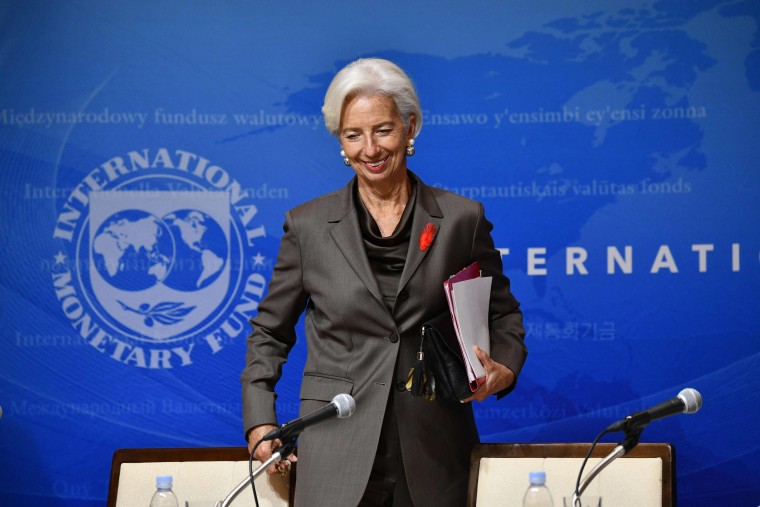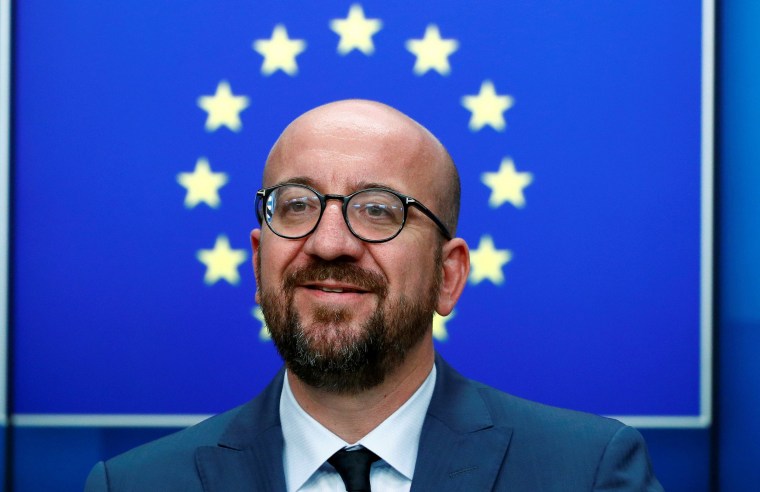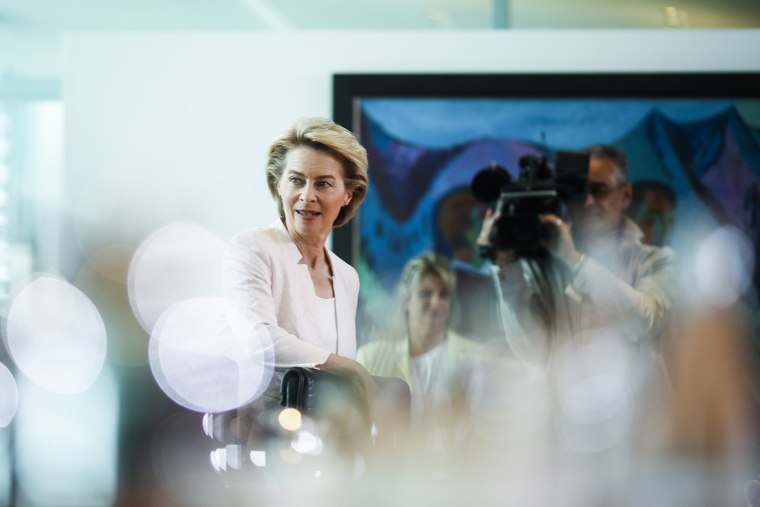LONDON — A German defense minister who once said President Donald Trump had an outdated view of women is in line to become the first female president of the European Union's executive body.
Ursula von der Leyen has been nominated for president of the European Commission, which proposes and enforces policy for the 28-member political and economic union and is one of the two most powerful E.U. institutions.
France's Christine Lagarde, who currently heads the International Monetary Fund, has been nominated as president of the European Central Bank, which sets monetary policy for the 19 nations that share the euro currency.
Von der Leyen, 60, is a close friend of Angela Merkel, speaks multiple languages and was a doctor before she entered politics. However, the Brussels-born mother-of-seven's nomination was a surprise after E.U. leaders failed during long and fraught negotiations to agree on any of the front-runners.
Both she and Lagarde, 63, still need approval from European lawmakers before they can enter these top jobs. The votes are expected to take place mid-July.

Von der Leyen has criticized Trump, namely his stance on Russia following the 2016 U.S. presidential election.
"Donald Trump has to say clearly on which side he is: whether he's on the side of the law, peace and democracy or whether he doesn’t care about all that and instead he's looking for a best buddy," she said. The "best buddy" to whom she referred was Russian President Vladimir Putin.
She has also suggested that Trump's strained relationship with Merkel was due to his lack of familiarity with strong female leaders.
"A woman like Angela Merkel, a globally respected head of government with a long experience, probably did not exist in his worldview until now," she told Spiegel magazine last year.
Nevertheless, her pick was a surprise, not just because she came ahead of more recognizable names on the continent, but also because she has struggled as a member of her own government. She was dismissed Tuesday by former European Parliament President Martin Schulz as Germany's "weakest minister."
Her tenure at the ministry of defense has been marked by scandals over the awarding of contracts, right-wing extremism in the German armed forces, and criticism about gaps in military readiness. That said, she is far from the first German defense minister weighed down by scandal, and she has held on to the job for longer than recent predecessors.

Von der Leyen is also a Europhile who has advocated a federalist approach of closer integration within the bloc. In 2011, she even said she wanted a "United States of Europe along the lines of federal states like Switzerland, Germany or the U.S."
However, the German ambassador to Britain, Peter Wittig, told the BBC on Wednesday that she was a "pragmatist" rather than a federalist. Such a distinction could prove important, as installing an overtly federalist chief could alienate euroskeptics, such as Britain's Brexit Party, who will need to ratify her position.
In London, lawmakers will also be picking apart her views on Brexit, which she described last year as "a burst bubble of hollow promises." She has also said that a no-deal Brexit would be the “worst possible start” to the post-Brexit relationship between Britain and the E.U.
Lagarde has led the International Monetary Fund since 2011 and last year was ranked the third most powerful woman in the world by Forbes.
A lawyer rather than an economist by training, she was the first woman to chair global law firm Baker McKenzie. She lives in Washington and said she would temporarily give up her managing director role at the IMF during the nomination process.
Von der Leyen and Lagarde were nominated by the leaders of the 28 E.U. countries following European parliamentary elections in May.
The other nominations include Belgium's former Prime Minister Charles Michel for European Council president, who would be responsible for chairing the work of E.U. leaders. Spanish Foreign Minister Josep Borrell has been nominated for E.U. foreign policy chief.
Italian socialist lawmaker David-Maria Sassoli was elected president of the European Parliament on Wednesday.
